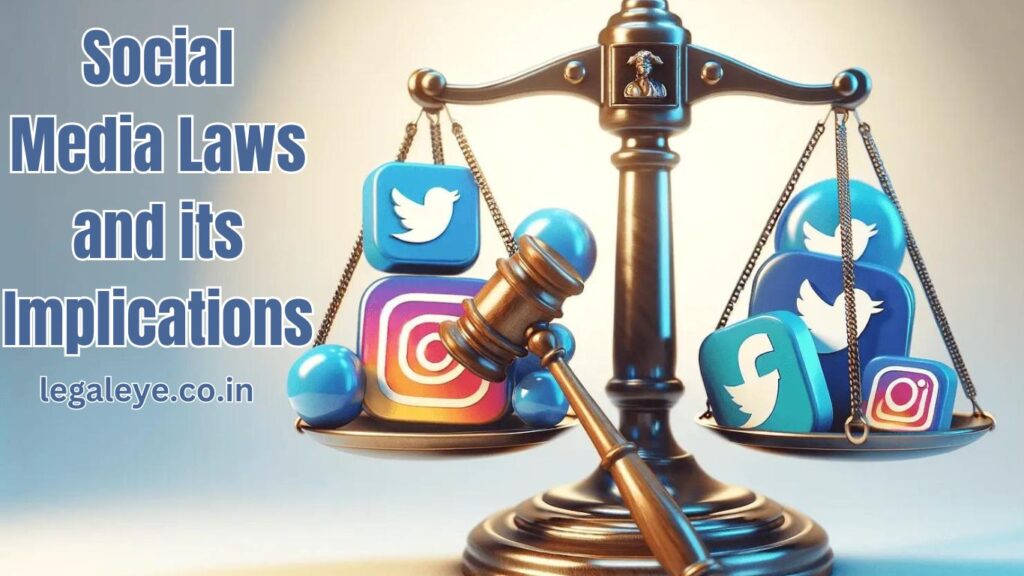
Social Media Laws and its Implications-Social media has become an integral part of our daily lives, transforming the way we communicate, share information, and interact with one another. With the rise of platforms like Facebook, Twitter, Instagram, and LinkedIn, the need for regulations and laws to govern social media use has become increasingly important. Media law and cyber law play a critical role in managing the legal and ethical complexities of social media usage. In this blog, we explore social media laws and their implications, with insights from the legal experts at LegalEye Firm.
The Importance of Media Law and Cyber Law
Media law and cyber law provide a framework for ensuring the safe and responsible use of social media. They help protect users’ rights, regulate content, and prevent the misuse of online platforms. These laws encompass various aspects, including privacy, intellectual property, freedom of speech, and cyberbullying.
Key Aspects of Social Media Laws
Privacy and Data Protection:
Social media platforms collect vast amounts of data from users, including personal information and browsing habits. Media law and cyber law establish guidelines for data collection, storage, and sharing to protect users’ privacy. LegalEye Firm advises individuals and organizations on compliance with data protection regulations such as the General Data Protection Regulation (GDPR) and the California Consumer Privacy Act (CCPA).
Content Regulation:
Social media laws govern the type of content that can be shared online. This includes rules against hate speech, harassment, defamation, and the dissemination of illegal content. LegalEye Firm provides counsel on navigating content regulation and avoiding legal pitfalls.
Intellectual Property Rights:
Social media platforms often involve the sharing of creative works such as images, videos, and music. Media law protects the intellectual property rights of creators by preventing unauthorized use or distribution of their content. LegalEye Firm assists clients in understanding copyright and trademark laws in the digital space.
Cyberbullying and Harassment:
Social media platforms can be a breeding ground for cyberbullying and online harassment. Cyber law provides legal recourse for victims and holds perpetrators accountable. LegalEye Firm offers guidance on addressing and reporting cyberbullying incidents.
Advertising and Marketing Regulations:
Social media is a powerful tool for advertising and marketing, but it is subject to regulations to prevent deceptive or misleading practices. LegalEye Firm helps businesses navigate advertising laws and ensure compliance with regulations.
Implications of Social Media Laws
The legal landscape surrounding social media has significant implications for both individuals and organizations. Non-compliance can result in legal disputes, reputational damage, and financial penalties. Here are some key implications:
- For Individuals:
- Violating social media laws can lead to legal action, fines, or account suspension.
- Privacy breaches can result in identity theft and other forms of harm.
- Cyberbullying and harassment can have severe emotional and psychological impacts.
- For Organizations:
- Non-compliance with data protection and content regulations can lead to hefty fines and legal action.
- Intellectual property infringements can result in costly lawsuits and reputational damage.
- Misleading advertising practices can harm consumer trust and lead to legal consequences.
Conclusion
Social Media Laws and its Implications-Social media laws play a crucial role in ensuring a safe and fair online environment for everyone. As social media continues to evolve, so do the legal challenges associated with its use. LegalEye Firm is dedicated to helping individuals and organizations navigate the complexities of media law and cyber law. By staying informed and seeking expert legal counsel, you can use social media responsibly and avoid legal pitfalls.

